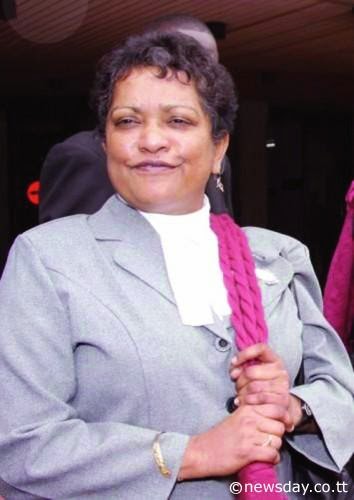Barbados: Excellent Cadre Of Teachers
by Stewart Russell,
Your recent article : “Teachers and Politics” is a
fair representation of the facts. Both
the DLP and the BLP, usually at their time of governance, have taken shots at
the broadside of the teaching profession in Barbados. As you
have rightly expressed, even the great man, himself, has been party to this
maligning of teachers. You have brought
back to our remembrance some of those cutting remarks that were either
intentionally meant to damage the profession or at the very least were uttered
in moments of human weakness, namely ignorance.
I can attest to the fact that Barbados has an excellent cadre
of teachers. It is not difficult to
recognize this particularly if you set it against the backdrop of the scarcity
of appropriate teaching resources they have at their disposal. The EDUTECH endeavour was meant to do much
more in alleviating this problem but failed miserably in its most important
component: that of the pedagogy. The
hand of spoilage re: the hand of politics, or better stated, the hand of the
politicians was very evident in this matter. If you want a man to know
everything about a particular ministry portfolio overnight, simply make him a Cabinet
Minister and he becomes the advisor, the consultant and the sage par
excellence. The technocrats as well as
the technicians in that particular domain become his ‘puppets on strings’ and
he manipulates them often to meet hidden as well as not so hidden agendas. Let’s face it, this has been prominent in the
operations of both political parties and I dare say that in moments of honest
reflection, even some of their most seasoned political yard fowls have admitted
to this anomalous practice.
Let me state here, that in my humble opinion, our teachers
generally are devoted and dedicated to the task assigned to them. I speak of the challenge of equipping our nation’s
children with the knowledge and skills necessary to continue the development of
society and put our country on a firm foundation that is characterised by a meaningful
education, evidenced by good social skills, an enviable work ethic and
exemplary spiritual and moral values.
Our teachers strive for this and they do it, quite obviously, within the
context what they know about the teaching/learning phenomenon. They put in long hours of hard work and to
some extent, effective hard work, but this is hampered greatly by the fact that
they do most of the work while their charges often are allowed and encouraged
to put in minimum work for optimum rewards.
The result is that teachers retire to their homes on a daily basis
suffering with much stress and burnout. This
ought not so to be. The paradigm shift
required is the reverse. What is
urgently needed is a shift away from the heavy diet of quantitative
teaching/learning recipes to more qualitative approaches of teaching and
learning. The teacher needs to see
himself as a facilitator who helps the student to draw on and build on his
intuitive learning deposits. No student
starts school with a clean slate for he comes with more knowledge that he has
already acquired than he will learn for the rest of his lifetime. I know this sounds unbelievable but a not too
careful examination will reveal this to anyone who takes but a moment to study
it. The student ought to be at the
centre of his learning but we have unwittingly planted the teacher there. Students must be forced to take more
responsibility for their own learning. Students
who are exposed mostly to quantitative teaching methodologies will ask
questions such as “what do I do next” or “what is the next step”. Conversely, students who are exposed to
qualitative teaching approaches will ask questions such as “what if I had done
this or that instead” or simply “why”.
The “why” question is asked by very young children even before their
first formal school experience but often it is brushed aside by their first
teachers, namely their parents.
Quantitative teaching produces quantitative learners while qualitative
learners are the outcome of qualitative teaching approaches. The learning experience that emerges from the
latter is more meaningful as well as more durable. This will go a long way to develop students
who will be more critical in their thinking, creative in their endeavour and
successful in their problem solving.
As a consequence, there are two very obvious implications
regarding how we must approach education in Barbados. The first relates to the training of teachers
while the second has to do with the kind of teaching resources we make
available in our schools. Training has
to start with the tutors at our lone teacher training institution. That training must be uniquely relevant to
Barbados and within the context of its culture.
Concomitantly, teachers must be trained in the approaches and
methodologies that are geared towards facilitating the students’ learning as
opposed to just simply delivering content knowledge and skills.
The Ministry of Education has to pay more attention to the
teaching resources that are put in schools.
The quality of those resources must be guided by adequate research and
the quantity according to the need in the particular school. All this must be managed by Ministerial Technocrats that are not out of date or out of touch with the
nature of the citizen that this country needs in order to make it more
competitive in this the twenty first century.
Barbados has long demonstrated that that its strength lies in the
abilities and resilience of its people.
Relatively void of natural resources, our hope for survival in a fast
paced and highly competitive world must lie in our people and their commitment
to God and country.
Stewart Russell is a retired educator.



Comments